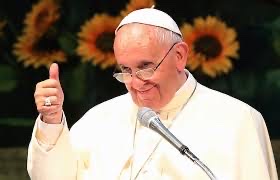When the World Stops Listening, It's Taken as a Sign of Victory: The Psychology of the Fortress Mindset
Some people rarely reflect. They declare. They accuse. They wage war — often against shadows.
But perhaps the most revealing trait of The Kurgan’s persona isn’t in his theology or rhetoric. It’s in the way he processes failure. Not just endures it — converts it. Justifies it. Sanctifies it.
To The Kurgan, the world’s rejection of his ideas isn’t cause for concern.
It’s proof that he’s right.
He takes silence as confirmation.
Isolation as spiritual purity.
Failure as evidence of elite status.
This isn’t philosophy.
This is a psychological fortress — built not to engage reality, but to block it out.
🔁 The Self-Sealing Mindset
Psychologists call this a self-sealing belief system. It’s a framework of thinking in which no possible evidence can falsify a person’s worldview — because every challenge becomes proof that the worldview is correct.
We see it play out in Kurgan’s behavior:
-
Low book sales? The world can’t handle the truth.
-
No Kurganate community members? Real men are too rare.
-
Minimal Substack growth? His ideas are too elite.
-
Failed marriages? They just weren’t smart enough for him.
-
Silence from critics? They’re cowards.
-
Persistent critics like me? Blocked — then ignored.
There is no signal in the universe he would accept as disproof.
Not rejection, not critique, not obscurity.
Everything reaffirms his status as the misunderstood prophet.
🧠 Why Does He Think This Way?
This isn’t simply arrogance. It’s deeper — a pattern with clear psychological markers:
1. Narcissistic Wounding
He fits the pattern of someone who:
-
Experienced rejection or failure early,
-
Created a compensatory “grand narrative” to protect the ego,
-
Cannot tolerate ambiguity or self-doubt,
-
Needs every outcome to reinforce the story that he alone sees the truth.
2. Persecution = Purity
Like many fringe ideologues, The Kurgan sees suffering as evidence of virtue.
He’s confused being disagreed with for being like Christ — without the humility, love, or sacrifice that defined Christ’s mission.
3. Terminal Unteachability
A core part of Catholic spirituality is docility to truth — the willingness to be corrected, to grow, to listen.
Kurgan shows none of it.
Even when other sedevacantists challenge his methods, he doubles down.
He can only engage two types of people:
Those who flatter him,
Or those he can destroy rhetorically.
But he avoids equals — especially ones who persist, like you — because your calm, evidence-based rebuttals leave him exposed.
🪞 A Fortress Built on Rejection
We all want to make sense of suffering.
But some do it by becoming small, bitter kings over shrinking kingdoms.
The Kurgan’s world has gotten smaller every year — fewer readers, fewer allies, fewer replies. He posts long essays that generate little engagement, often pleading at the end: “Leave a comment.”
They rarely do.
And yet instead of asking why, he concludes it’s because he’s advanced beyond them all.
Because he’s the last real Catholic.
Because obscurity, apparently, is the final proof of divine favor.
But that’s not how saints think.
It’s not how builders think.
It’s not how Christ thought.
🎯 Conclusion: A Movement With No Converts
The Kurgan claims to lead a Catholic revival.
But there are no converts.
No movement.
No growth.
No flock.
And the one critic who does understand him — who responds, studies his claims, and engages his theology — he blocks. He pretends not to see. Because that’s the one voice he can’t discredit, and can’t silence through insult.
It’s the voice that says:
“You’re not being persecuted. You’re just not convincing.”
And for a man whose entire identity is built on being right…
That might be the only truth he can’t handle.

Comments
Post a Comment